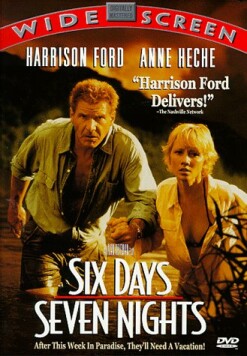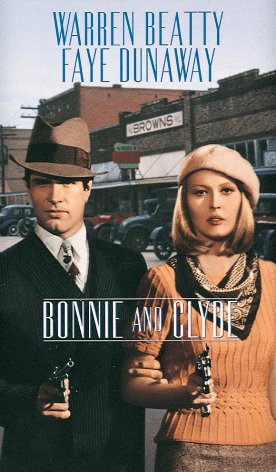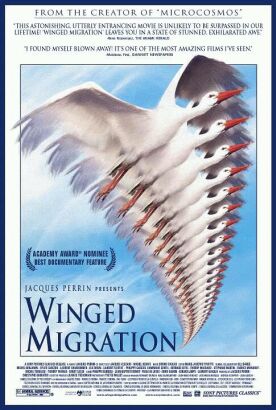Love’s Labour’s Lost
Kenneth Branagh’s new film of Love’s Labour’s Lost has very little to
do with the play of the same name by William Shakespeare. Branagh’s
marketability (such as it is) has always been pretty closely tied to that of the
16th century playwright, but here he is shamelessly using the Shakespeare brand
name simply in order to sell a typically Branaghian bit of self-indulgence. This
involves him and a gang of new best friends singing and dancing to popular songs
of the pre-war era and enjoying themselves hugely. Unfortunately, Ken and
friends are not quite up to the old performance standards that they are
attempting to ape. It’s not that they are hopelessly bad, it’s just that, in
order to come off, such singing and dancing has to crackle with a sort of energy
and electricity that the best of the old musicals supplied in abundance but that
is painfully absent here. Only Adrian Lester, who plays Dumaine, might have
passed an audition before one of the great Hollywood choreographers of old.
This is not quite Peter Bogdanovich’s memorable turkey, At Long Last
Love (1975), in which the singing and dancing were led by Burt Reynolds and
Cybill Shepherd, nor yet Woody Allen’s Everyone Says I Love You (1996),
featuring the golden voices of Edward Norton and Drew Barrymore. But at times
the amateurism of it is uncomfortably close.
Given this failure, it seems hardly worth mentioning that an all-singing,
all-dancing Love’s Labour’s Lost is hardly in keeping with the (very
Shakespearean) undercurrent of melancholy in the play. Perhaps recognizing this,
Branagh attempts to drag in some melancholy from outside by setting the film in
an imaginary British public school in an imaginary Navarre (why would they have
a British public school in Navarre anyway?) in 1939 and making constant
references to the looming prospect of War in Europe. Though I think this a very
bad idea, it provides the occasion for what is the only really good bit of comic
invention in the film, namely the pastiche of pre-war newsreels commenting on
the action. These are done to the life, complete with the lame puns and corny
jokes and those amazing old-style, upper-class BBC accents that you never hear
anymore, even from the royal family.
Thus the news of the vow of the king (Alessandro Nivola) and his three lords,
Dumaine, Longueville (Matthew Lillard) and Biron (Mr. Branagh) to study for
three years while forswearing the company of women is greeted by the
artificially jovial announcer’s saying
that it will be “a real feast for
bookworms. Sorry, ladies, but he is the
king.” When the princess (Alicia
Silverstone) and her women, Katherine (Emily Mortimer), Maria (Carmen Ejogo) and
Rosaline (Natascha McElhone) are forced by the king’s vow to set up their
pavilion outside the public school gates, the newsreel heading is
“Royals Camping: a night under canvas
for the ladies.” The pageant of the
Nine Worthies is advertised by the same cornball announcer’s saying: “Who better
to arrange an exotic night than an exotic knight” and we see a grainy
black-and-white shot of Don Armado (Timothy Spall).
But even in this, Branagh is typically inclined to go overboard, and the
concluding newsreel, which attempts to cram the entire history of the Second
World War into five minutes, without narration but against a poignant rendering
of “They
Can’t Take that Away from
Me” and some schmaltzy, Henry
V-type music by Patrick Doyle, is an absurd straining after effect. In the
same way, a lot of the spectacle—a
synchronized swimming demonstration, a fragmentary vaudeville act by Costard
(Nathan Lane), a duet between Nathaniel (Richard Briers) and a feminized version
of Holofernes, Geraldine McEwan’s
“Holofernia” to
“The Way You Look
Tonight”—all these things seem to be
dragged in by the ears for the sake of the
film’s tribute to and gentle mockery
of the light entertainment of the 1930s. Shakespeare by this time is
long-forgotten.
This is a pity because, almost more than any other of his plays, this one
presents a real challenge for the contemporary interpreter-adapter. Its learned
and often
proto- “metaphysical”
wit is less accessible, less comprehensible to us than anything in any of the
other comedies, and yet its interest in the recalcitrance of male sexual desire
and the feebleness of moral, intellectual, rational and especially all
self-imposed restraint upon it offers us much matter for profitable study.
Branagh’s only idea about this problem
is to cut out virtually all the wit-play and substitute in its stead the 1930s
schmaltz. It is easy to suppose that the only bit of what remains which is meant
to be taken seriously is Mr. Lane’s rousing version of
“There’s
No Business Like Show Business,” which
here replaces the pageant of the Nine
Worthies—now of course long forgotten
and so Worthy no more. One wonders if Shakespeare would have agreed about Show
Business.
There are other problems. Timothy Spall is embarrassingly miscast as Don
Armado and Moth almost fades from view. The talented Mr Briers and and Miss
McEwan are wasted, since almost the whole of their dialogue as written by
Shakespeare is cut. Nathan Lane as Costard is a good idea, but his comedy also
mostly falls flat. As already observed, neither the boys nor the girls among the
main characters are quite up to the demands of the singing and dancing, and
Alicia Silverstone shows signs of being the new Andie McDowell: a poor actress
who nevertheless has the taste to keep turning up in good, even great parts. She
seems unable to speak without curling her lip in a most distracting way. Is she
trying to suppress a sneer? If so, her taste is even better than we might have
supposed.
Discover more from James Bowman
Subscribe to get the latest posts to your email.






